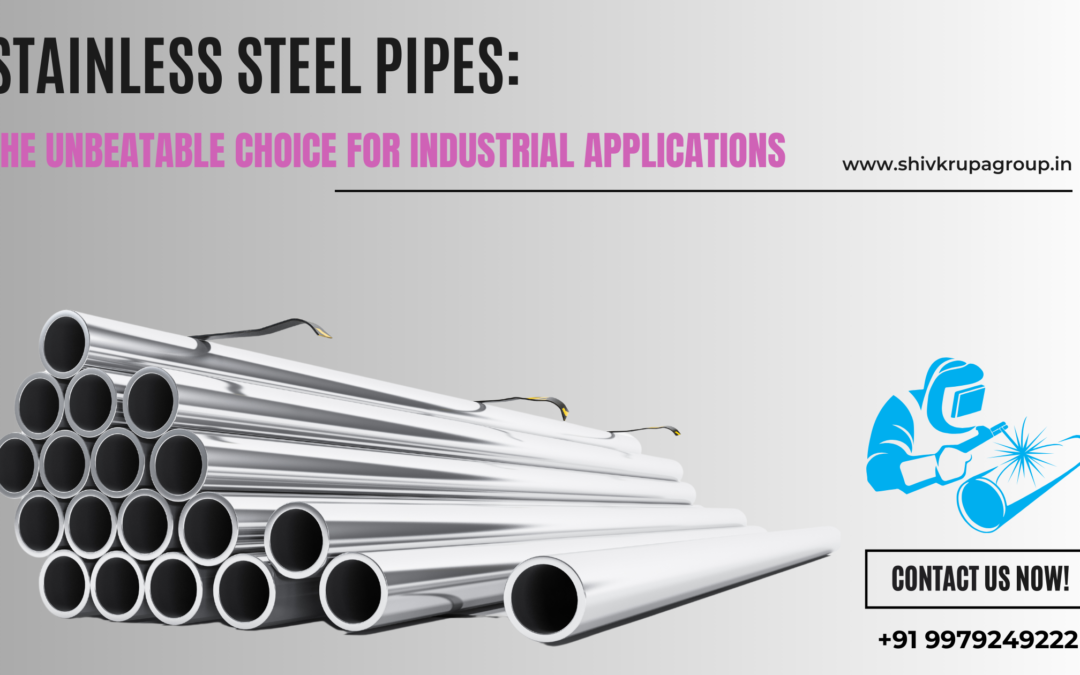Stainless steel pipes have long been hailed as one of the most versatile and durable materials in various industrial sectors. From chemical processing plants to oil and gas refineries, stainless steel pipes are the preferred choice for conveying fluids, gases, and solids in demanding environments. In this blog post, we’ll delve into the myriad benefits of stainless steel pipes and why they stand out as the unbeatable choice for industrial applications.
1. Corrosion Resistance
- Stainless steel pipes exhibit exceptional resistance to corrosion, making them ideal for applications where exposure to harsh chemicals, moisture, or corrosive gases is prevalent. This inherent resistance ensures longevity and reliability, even in the most corrosive environments.
- The passive oxide layer formed on the surface of stainless steel pipes acts as a protective barrier against corrosion, preventing rusting and degradation over time. This corrosion resistance translates to lower maintenance costs and extended service life compared to other materials.
2. Strength and Durability
- Stainless steel pipes boast impressive mechanical properties, including high tensile strength, toughness, and impact resistance. This inherent strength makes them capable of withstanding extreme temperatures, pressures, and mechanical stresses common in industrial operations.
- Their durability ensures reliable performance under challenging conditions, reducing the risk of leaks, ruptures, or structural failures. Stainless steel pipes maintain their integrity over prolonged periods, minimizing downtime and ensuring continuous operation in critical processes.
3. Hygiene and Sanitation
- Stainless steel pipes are non-porous and easy to clean, making them the preferred choice for industries requiring strict hygiene standards, such as food and beverage, pharmaceuticals, and healthcare. Their smooth, seamless surfaces prevent bacterial growth and contamination, ensuring product purity and safety.
- The inert nature of stainless steel eliminates the risk of chemical leaching or contamination, preserving the integrity and quality of sensitive materials being conveyed. This cleanliness and hygiene are essential for compliance with regulatory standards and maintaining consumer trust.
4. Versatility and Adaptability
- Stainless steel pipes are available in a variety of sizes, shapes, and grades to suit diverse industrial applications. Whether it’s conveying corrosive fluids, high-pressure gases, or abrasive solids, there’s a stainless steel pipe solution tailored to specific requirements.
- They can be fabricated into seamless or welded pipes, offering flexibility in design and installation. Stainless steel pipes can be easily customized with fittings, flanges, and connections to accommodate complex piping systems and configurations.
5. Environmental Sustainability
- Stainless steel is a fully recyclable material with a high scrap value, contributing to sustainable practices and resource conservation. Recycling stainless steel pipes reduces the demand for virgin raw materials and minimizes energy consumption and carbon emissions associated with production.
- Their longevity and durability also contribute to environmental sustainability by reducing the need for frequent replacements and minimizing waste generation. Stainless steel pipes support green initiatives and help industries achieve their sustainability goals.
6. Aesthetic Appeal
- Beyond their functional benefits, stainless steel pipes offer aesthetic appeal and architectural versatility in industrial settings. Their sleek, polished surfaces add a modern and professional touch to facilities, enhancing visual appeal and brand image.
- Stainless steel pipes are often used in architectural and decorative applications, such as handrails, balustrades, and structural elements, where aesthetics are as important as functionality. Their timeless elegance and luster make them a preferred choice for designers and architects alike.
Conclusion
Stainless steel pipes are unparalleled in their ability to meet the rigorous demands of industrial applications. With their exceptional corrosion resistance, strength, hygiene, versatility, and sustainability, stainless steel pipes offer unmatched performance and reliability across diverse sectors. As industries continue to evolve and innovate, stainless steel remains the undisputed choice for conveying fluids, gases, and solids in critical processes, ensuring efficiency, safety, and longevity.

